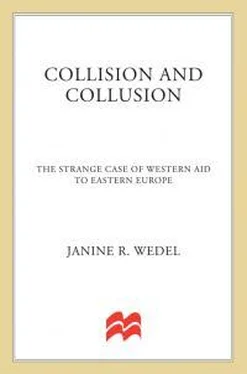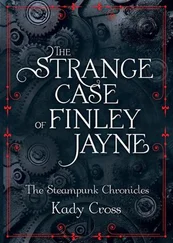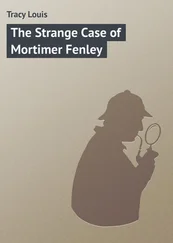Potanin was associated with the highly visible Boris Jordan, a Russian-born U.S. citizen and entrepreneur who, at age 26, pioneered the Russian equities market for Credit Suisse First Boston. There Jordan established the Icebreaker Fund. Potanin and Jordan formed the investment bank Renaissance Capital; Jordan became its CEO and set up Renaissance’s Sputnik Fund, another investment fund. According to Williamson, the early investors in Sputnik were George Soros and the HMC—the only Icebreaker Fund investors who chose to keep their money with the young Jordan, rather than with the established Credit Suisse First Boston. Why? At least part of the answer, Williamson maintains, lies in the fact that by staying with Jordan, Soros and the HMC were the only foreign investors who were permitted to participate in the loans-for-shares auctions. Contrary to the rules governing loans-for-shares, under which foreigners were excluded, these two investors were able, via Jordan’s close relationship with Potanin, to get in on two of Unexim’s best deals, Novolipetsk and Sidanko.185 Ostensibly to distance himself from these deals, Soros characterized privatization under Chubais as “quite repulsive” and Chubais himself as “tainted by the robber capitalist arrangements” at a 1998 Harvard-sponsored investment conference.186 In testimony before the House Banking Committee later that year, Soros was asked how he was able to participate in the deals. He admitted: “I think that there were no foreign investors in that because we were a part of a Russian group that bid. I would say I was part of the crony stuff that was going on, and it was that [sic] still the old deal where the various groups divided this place among themselves.”187
Jack Meyer, president of the HMC, declined to comment when asked whether Harvard had invested in Novolipetsk. Meyer denied getting any investment advice from Andrei Shleifer or Jonathan Hay, although Harvard economist Jerry Green, the university’s former provost, said it was not uncommon for the HMC to solicit investment advice from Harvard professors who had special insight into certain emerging markets.188 Jay Light, a professor at the Harvard Business School and the only Harvard academic on the HMC board, also denied any connection between the HMC and Harvard professors. But he said that Jack Meyer got to know Boris Jordan seven years ago, that Meyer has “talked about Boris for a long time,” and that for the HMC’s Russian investing, Meyer “runs the show.”189
Williamson reported that Harvard has profited by trading in Russia’s high-yield domestic bond market, which relies heavily on IMF lending. The U.S. official responsible for signing off on IMF lending is former Harvard professor and now Secretary of Treasury Lawrence Summers. Shleifer, Hay, and Soros, as well as Chubais and some of his cronies, invested in what was, in 1996, the most lucrative government debt market in the world, especially for holders of the short-term treasury bills (known as GKOs) issued by the Russian Finance Ministry.190 Soros, who began supplementing his philanthropic activity in Russia with investments several years ago, said, when asked at a Moscow press conference if his investments were serving to consolidate the country’s oligarchy, that strengthening the oligarchy would benefit Russia.191 In March 1998, Soros revealed that he had secretly lent the Russian government several hundred million dollars in summer 1997 to pay pensions as Yeltsin had promised. For many Russians, Soros’s revelation answered the question of what, beyond a “very favorable” interest rate, he had received in return for his generosity. Weeks after making the loan, Soros was allowed to join a handful of Russian investors in bidding successfully for 24 percent of Svyazinvest, a national telecommunications holding company created by the government. (Soros later said he had “made a mistake.”)192
Outrage over the auction of Svyazinvest grew in late summer 1997 and led to the September firing of GKI chairman Alfred Kokh, a Chubais Clan member who also served as deputy chairman of the board of the Harvard Institute-created, Western-funded RPC discussed earlier. (Kokh is currently under investigation for embezzlement charges and was denied entry into the United States in December 1999193). Even Boris Yeltsin noted that “some banks are apparently closer [than others] to the heart of Alfred Kokh, and this is not proper.”194 In a game of musical chairs for public consumption, Kokh was replaced by Chubais associate Boycko, former CEO of the RPC.
But Boycko would soon become a victim of another corruption scandal, involving payments of some half a million dollars to Chubais and other key members of the Chubais Clan, including himself, Kokh, Vasiliev, and Arkady Yevstafiev, who was one of the two men arrested for carrying cash out of the Russian White House.195 Kokh had struggled to explain a book advance he received from a Swiss company affiliated with Unexim. He never wrote the book but declared $100,000 in 1996 income from the firm.196 In 1997, several more “authors” received $90,000 each for another unpublished book on the history of Russian privatization, each from the same Swiss company, of which Chubais associate Potanin is chairman and which is run by Boris Jordan’s uncle. These men did not deny the payments, which Alexander Minkin, the prominent investigative reporter who uncovered them, called a “veiled bribe.” Yeltsin subsequently fired three of the culprits, including Boycko, and also harshly criticized Chubais for “unacceptable activities” in his personal financial dealings.197
In addition to investigating the “book scandal,” Russia’s prosecutor-general’s office reportedly has examined the following Chubais-related activities: the GKI’s activities since 1991, offers of apartments to those who moved to Moscow after accepting official posts, a land purchase by Chubais, and a bank loan he took to build a dacha. This office has also investigated whether Chubais provided the IMF with information on Russia’s economy and on what terms.198
Chubais was forced by Yeltsin to relinquish his assignment as finance minister but continued to hold the post of first deputy prime minister until he was fired in March 1998. In June 1998, however, he was reappointed to be Yeltsin’s special envoy in charge of Russia’s relations with international lending institutions.
When the issue of “Russian” corruption captured American headlines in 1999, Treasury Secretary Summers began insisting that the Russian government make amends. “This has been a U.S. demand for years,” he claimed, as if he had not been a crucial and steadfast sponsor of the Harvard advisors (now being sued by the U.S. government), as if he had not himself addressed letters to “Dear Anatoly” and had not continued to meet with Chubais, by then a private citizen, in the summers of 1999 and 2000.199 This after Chubais admitted that he had “conned” from the IMF a $4.8 billion installment in July 1998.200 The details of that deal had been worked out in Summers’s home over brunch—at a meeting that the New York Times deemed crucial to obtaining release of the funds.201
Yet because their success is grounded in mutual loyalty and trust, and because of their shared record of activities, some of which may open them up to allegations of corruption and to legal actions, the transactors have some incentive to stick together or at least to cover for each other. Polish sociologist Adam Podgorecki has aptly called this phenomenon “dirty togetherness.”202
Not surprisingly, then, in times of crisis for the Harvard-Chubais nexus—such as the ruble crisis of August 1998 and the Bank of New York money-laundering scandals—the transactors and their associates have sought to bolster their colleagues’ continued clout and standing in both Russia and the United States. Thus, Treasury Secretary Summers has frequently rushed to the defense of Chubais and other key transactors. In testimony before the U.S. House of Representatives’ Committee on International Relations, for example, Summers stoutly defended Chubais and asked that Chubais’s prepared statement (“I Didn’t Lie”) be placed in the Congressional Record.203 Similarly, Åslund serves as a staunch defender of and advocate for Chubais. He also has been arguing Vladimir Putin’s cause.204
Читать дальше












